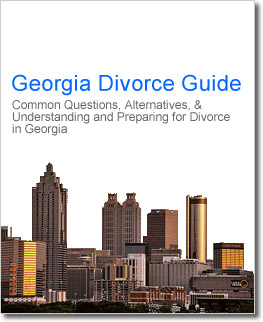Family Law Insights – Child Custody
Jeff Cleghorn’s Family Law Insights
 The client-focused Family Law team at Kitchens New Cleghorn, LLC. includes Jeff Cleghorn.
The client-focused Family Law team at Kitchens New Cleghorn, LLC. includes Jeff Cleghorn.
As partner and head of the Family Law Practice at Kitchens New Cleghorn, LLC., I always get asked the sort of questions no one likes to think about, unless they have to think about them.
Child Custody
Child custody is often the most important (and highest intensity) issue for a separating couple. Even if parents agree on which parent should have primary physical custody of the children, they may disagree vehemently on how to arrange the parenting schedule. If the parents are unable to reach an agreement on custody, then it is left to the judge to decide. But how does the judge make that decision?
In Georgia
In Georgia, the decision of awarding child custody is based on the best interest of the children. Bodne v. Bodne, 277 Ga. 445 (2003). The court weighs a variety of factors in determining what is in the children’s best interest. One important factor is history of parenting roles. For example, if one parent was predominantly responsible for day to day child care, while the other parent did relatively little, then the court may decide that it is in the children’s best interest to live with the historic caretaker. Another factor that the court may consider is the work schedule of both parents. For example, if one parent has a set 9-5 schedule while the other works 60 hours a week and travels, it may be in the children’s best interest to live primarily with the parent who is home more often, or otherwise offers a more stable schedule. Yet another factor that a judge could consider is the health (both physical and mental) and stability of each parent.
Same Sex Parenting
Child custody standards are the same for separating same sex parents and unmarried opposite-sex parents as they are for divorcing parents. In all of the above scenarios, the judge will determine custody based on the children’s best interest.
One other important factor for same sex parents is that a parent must be considered the legal parent of a child in order to be awarded custody. What this means is that a parent must either be the biological parent of his or her child, or have adopted that child. If, for example, one parent in a same sex couple had a biological child, and the other parent never adopted that child, then the non-biological parent could not be awarded custody.
Want More Info?
Check out our family law infocenter for answers to all of your divorce questions. Still need help? Contact our Atlanta Divorce Attorneys.

















